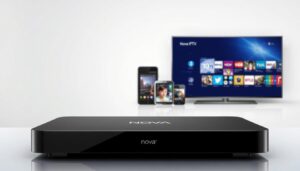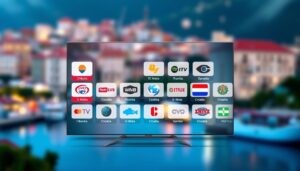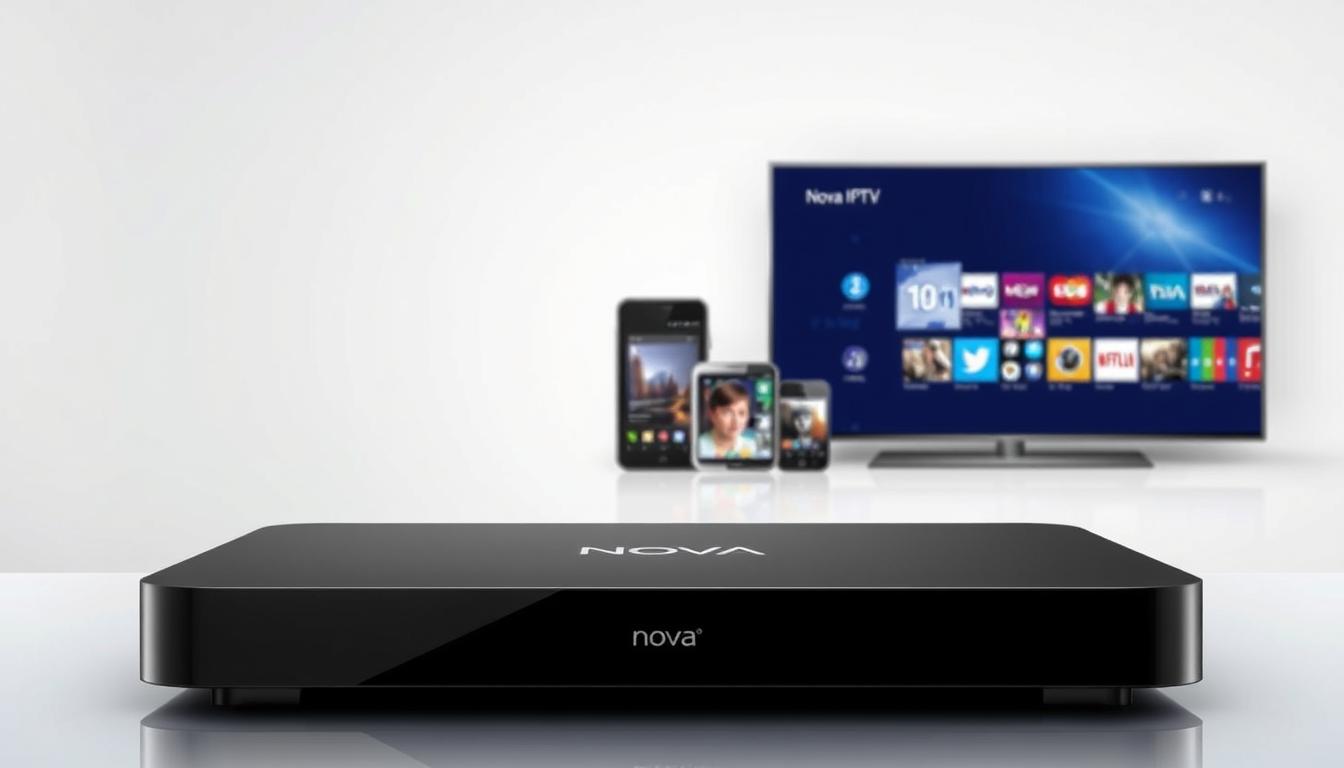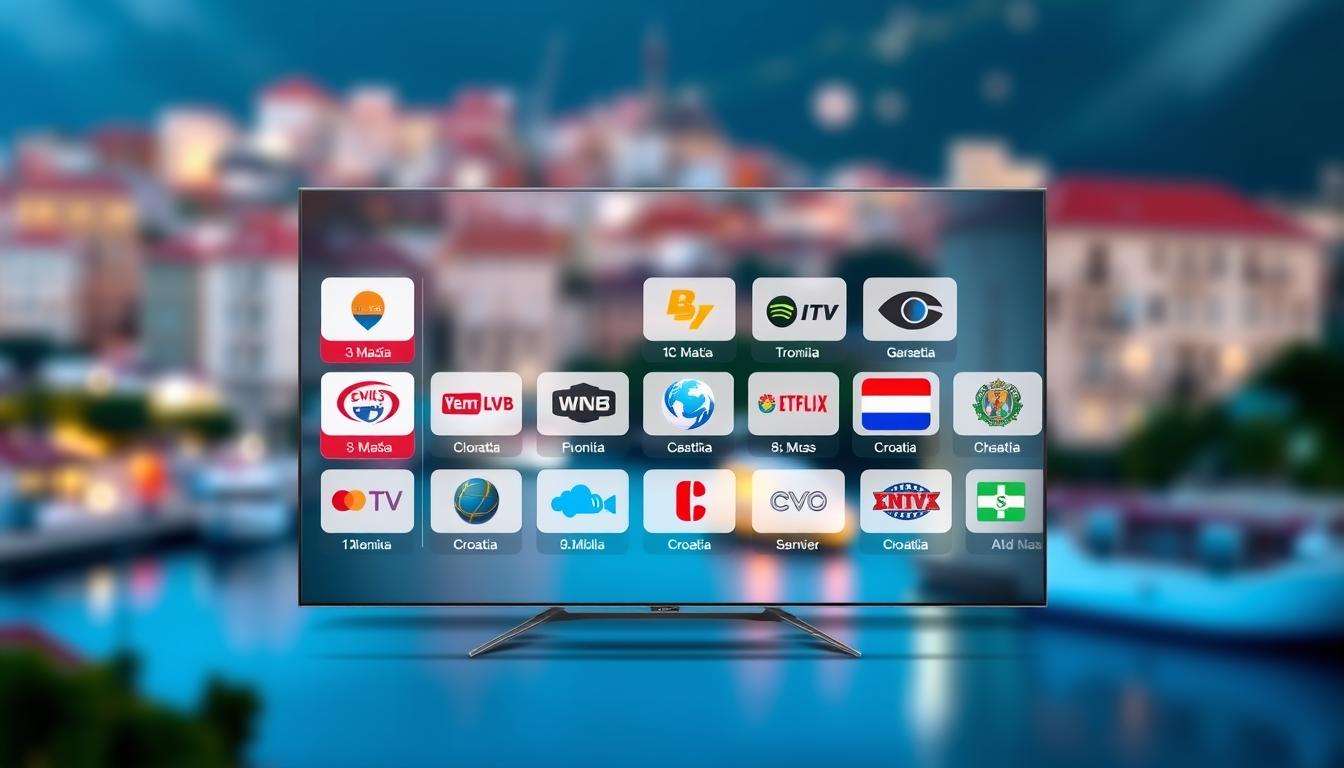
Are you tired of watching your favorite German TV shows interrupted by endless buffering circles? Smart IPTV has revolutionized television viewing, but streaming quality can often feel like a frustrating game of digital roulette.
In Germany, where digital entertainment is becoming increasingly sophisticated, IPTV (Internet Protocol Television) has emerged as a popular alternative to traditional broadcasting methods. Viewers now enjoy television programs through internet connections, bringing unprecedented flexibility and content diversity.
Smart IPTV offers an innovative approach to entertainment, allowing users to stream content across multiple devices. Yet, the seamless experience many expect is frequently disrupted by technical challenges that can transform an exciting viewing moment into a buffering nightmare.
Key Takeaways
- Smart IPTV provides flexible streaming options in Germany
- Buffering issues are common but manageable
- Internet speed critically impacts streaming quality
- Device configuration plays a significant role in performance
- Technical solutions exist to improve IPTV streaming experience
Understanding IPTV Buffering Fundamentals
Smart IPTV buffering represents a critical aspect of streaming technology that directly impacts viewer experience. At its core, buffering is a process where digital content is temporarily stored in a memory area before playback begins, ensuring smoother video streaming.

Streaming services rely on buffering to create uninterrupted viewing experiences. The mechanism allows devices to preload content, preventing potential interruptions during playback.
What Causes IPTV Buffering
Multiple factors contribute to smart IPTV buffering challenges:
- Insufficient internet bandwidth
- Network congestion
- Server-side performance issues
- Device hardware limitations
- Outdated streaming application
How Buffering Affects Streaming Quality
Buffering directly impacts streaming quality by creating interruptions and playback delays. When smart IPTV buffering occurs frequently, viewers experience:
- Video freezing
- Reduced video resolution
- Sudden playback stops
- Audio-video synchronization problems
Common Buffering Patterns in Germany
German viewers often encounter specific smart IPTV buffering patterns, particularly during peak evening hours and major sporting events. Internet infrastructure and regional network capacities play significant roles in these streaming experiences.
Understanding these buffering fundamentals helps viewers optimize their streaming setup and minimize disruptions.
Internet Speed Requirements for Smooth IPTV Streaming

Streaming smart IPTV depends critically on internet speed. German viewers need to understand the bandwidth requirements for different video quality levels to ensure uninterrupted entertainment.
The recommended internet speeds for smart IPTV streaming vary based on content resolution:
- Standard Definition (SD): 3-5 Mbps
- High Definition (HD): 5-10 Mbps
- Full HD (1080p): 10-20 Mbps
- 4K Ultra HD: 25-50 Mbps
Smart IPTV performance relies heavily on consistent internet speed. Deutsche Telekom and other providers offer various packages to meet these streaming demands. Users should conduct regular speed tests to verify their connection meets recommended thresholds.
Pro Tip: Always choose an internet plan that provides at least 20 Mbps for smooth smart IPTV streaming experiences.
Factors affecting internet speed for smart IPTV include:
- Network infrastructure
- Router quality
- Distance from internet exchange
- Concurrent device usage
German internet users can optimize their smart IPTV streaming by selecting appropriate internet plans and ensuring stable network configurations.
Network Configuration and Smart IPTV
Optimizing your network setup is crucial for a seamless smart IPTV network setup in Germany. The right configuration can dramatically improve your streaming experience, reducing buffering and ensuring high-quality video playback.

Streaming performance depends on several key network factors that can make or break your IPTV experience. Understanding these elements will help you create the most efficient smart IPTV network setup possible.
Router Settings Optimization
Your router plays a critical role in IPTV streaming quality. To maximize performance, consider these essential router settings:
- Enable Quality of Service (QoS) to prioritize streaming traffic
- Update router firmware regularly
- Select the least congested WiFi channel
- Adjust wireless transmission power
DNS Configuration Tips
Selecting the right DNS server can significantly improve your smart IPTV network setup. Recommended DNS options include:
- Google Public DNS (8.8.8.8)
- Cloudflare DNS (1.1.1.1)
- German-based DNS providers for potentially faster local routing
WiFi vs. Ethernet Connection Impact
While WiFi offers convenience, a wired Ethernet connection provides the most stable smart IPTV network setup. Ethernet connections deliver:
- More consistent network speeds
- Lower latency
- Reduced interference
- Improved streaming reliability
For the best streaming experience, always prioritize a direct cable connection to your router when possible. If WiFi is necessary, ensure your device is close to the router and minimize interference from other electronic devices.
Server Location Impact on Streaming Quality

When streaming smart IPTV content, server location plays a crucial role in delivering smooth, high-quality video experiences for German viewers. The physical distance between a user and the IPTV server directly influences streaming performance through network latency.
Optimal smart IPTV server location can dramatically improve streaming quality by reducing data transmission time. For German users, selecting servers geographically close to their region minimizes potential buffering and connection interruptions.
- Proximity to data centers in Germany reduces latency
- Shorter network routes improve streaming responsiveness
- Localized servers provide faster content delivery
Content Delivery Networks (CDNs) have revolutionized streaming performance by strategically positioning server locations. These networks distribute IPTV content across multiple geographic points, ensuring users receive data from the nearest available server.
Network latency can be significantly reduced by choosing smart IPTV providers with well-distributed server infrastructure.
German viewers should consider IPTV providers that maintain robust server networks within European data centers, particularly those with strong presence in Germany. Checking server locations can help users anticipate and mitigate potential streaming challenges.
Device-Specific Buffering Solutions
Streaming quality depends greatly on your device configuration. Different devices require unique approaches to smart IPTV device optimization. Understanding device-specific solutions can dramatically improve your streaming experience in Germany.
Navigating buffering challenges requires a strategic approach tailored to your specific streaming device. Each platform presents unique optimization opportunities that can enhance IPTV performance.
Android TV Troubleshooting Strategies
- Clear app cache regularly
- Update streaming applications
- Disable background applications
- Check network connection stability
Fire TV Stick Performance Enhancement
Fire TV Stick users can implement several smart IPTV device optimization techniques to improve streaming quality:
- Install reliable VPN services
- Sideload compatible IPTV applications
- Adjust video cache settings
- Minimize concurrent network usage
Smart TV Settings Adjustment
| Setting | Recommended Action |
|---|---|
| Picture Mode | Select Standard/Normal preset |
| Network Connection | Prefer wired Ethernet connection |
| Software Update | Enable automatic updates |
Implementing these device-specific strategies can significantly reduce buffering and enhance your overall smart IPTV device optimization experience in Germany.
ISP Throttling and VPN Solutions
Internet Service Providers (ISPs) in Germany often implement tactics that can disrupt smart IPTV streaming experiences. These tactics include bandwidth throttling, blocking specific server IPs, and restricting access to streaming platforms.
To combat these challenges, smart IPTV users can leverage VPN technology as an effective solution. A VPN creates a secure, encrypted connection that masks your internet traffic and prevents ISPs from detecting and limiting your streaming activities.
- Bypass ISP bandwidth restrictions
- Protect your online privacy
- Access geo-restricted content
- Improve streaming performance
When selecting a VPN for smart IPTV, consider these critical factors:
- Server locations in Germany and nearby countries
- High-speed connection capabilities
- Strong encryption protocols
- No-logging policy
Top VPN providers like NordVPN and ExpressVPN offer robust solutions specifically designed for streaming. These services provide dedicated servers optimized for high-bandwidth activities like smart IPTV, ensuring smooth and uninterrupted viewing experiences.
Pro Tip: Always choose a VPN with a kill switch feature to prevent accidental IP exposure during streaming sessions.
Cache Management and App Settings
Optimizing your smart IPTV app performance requires strategic cache management and careful app settings configuration. Users in Germany can dramatically improve their streaming experience by implementing targeted optimization techniques that address common performance bottlenecks.
Clearing App Cache Effectively
Cache buildup can significantly impact smart IPTV app optimization. Clearing your app’s cache helps resolve several streaming issues:
- Removes temporary files that slow down app performance
- Frees up device storage space
- Resolves playback inconsistencies
Buffer Size Adjustment Strategies
Understanding and adjusting buffer sizes can enhance your streaming quality. Smart IPTV app optimization involves finding the right balance between buffer size and network performance.
- Start with default buffer settings
- Gradually increase buffer size if experiencing frequent interruptions
- Monitor streaming stability after each adjustment
App Performance Optimization Tips
Implement these smart IPTV app optimization techniques to maximize streaming efficiency:
- Update apps regularly
- Close background applications
- Select appropriate video quality based on internet speed
- Restart your streaming device periodically
By following these smart IPTV app optimization strategies, German users can significantly improve their streaming experience and reduce buffering issues.
External Players and Codec Support
Smart IPTV users in Germany often encounter compatibility challenges with native video players. When standard streaming applications fail to play certain content, external players become a crucial solution for seamless viewing experiences.
The right external player can dramatically improve your streaming quality by supporting a wider range of codecs and file formats. Smart IPTV external players offer several key advantages:
- Enhanced codec support for multiple video formats
- Better performance with complex streaming protocols
- More robust playback options
- Customizable streaming settings
Selecting the ideal external player requires understanding your specific streaming needs. Popular options in the German market include:
| External Player | Codec Support | Performance Rating |
|---|---|---|
| VLC Media Player | Extensive | High |
| MX Player | Advanced | Very High |
| Kodi | Comprehensive | Excellent |
Pro Tip: Always ensure your chosen external player is compatible with your specific Smart IPTV device and streaming service to guarantee optimal performance.
“The right external player can transform your IPTV streaming experience from frustrating to fantastic.” – German IPTV Expert
When configuring smart IPTV external players, consider factors like hardware capabilities, network speed, and specific codec requirements to maximize streaming quality.
German ISP-Specific Considerations
Navigating smart IPTV streaming with German ISPs requires understanding specific network characteristics and potential challenges. Different internet service providers in Germany offer varied streaming experiences that can significantly impact your viewing quality.
Key considerations for smart IPTV users in Germany include:
- Checking ISP network infrastructure capabilities
- Understanding bandwidth limitations
- Monitoring network congestion periods
- Reviewing streaming service compatibility
Major German ISPs like Deutsche Telekom, Vodafone, and 1&1 have unique network configurations that affect smart IPTV performance. Subscribers should regularly:
- Review ISP service status pages
- Monitor network maintenance schedules
- Test connection speeds during peak hours
- Communicate with technical support about streaming issues
Proactive communication with your German ISP can help resolve smart IPTV streaming challenges more effectively. Collecting specific details about buffering, connection drops, and streaming quality will enable more targeted technical support.
Smart IPTV success in Germany depends on understanding your ISP’s unique network ecosystem.
When experiencing persistent streaming problems, consider exploring alternative ISPs or supplementing your current service with advanced networking solutions to optimize smart IPTV performance.
Conclusion
Solving Smart IPTV buffering challenges in Germany requires a comprehensive strategy. Users can dramatically improve their streaming experience by understanding network configurations, device settings, and technical optimizations. Smart IPTV Germany solutions are not just about quick fixes but developing a systematic approach to digital streaming performance.
The key to seamless streaming lies in multiple layers of technical intervention. From router settings to internet speed management, viewers can implement targeted strategies that reduce interruptions. Deutsche Telekom and other German internet service providers offer potential tools and configurations that can enhance IPTV performance when correctly utilized.
Technology evolves rapidly, and staying informed about the latest streaming technologies will be crucial. German consumers should remain proactive in updating their network equipment, understanding codec support, and exploring advanced VPN solutions. The future of IPTV in Germany looks promising with increasing digital infrastructure investments and improved streaming technologies.
Ultimately, achieving an optimal streaming experience demands patience, technical knowledge, and continuous learning. By applying the strategies discussed in this guide, users can transform their Smart IPTV setup into a reliable and high-quality entertainment platform tailored to the unique digital landscape of Germany.








